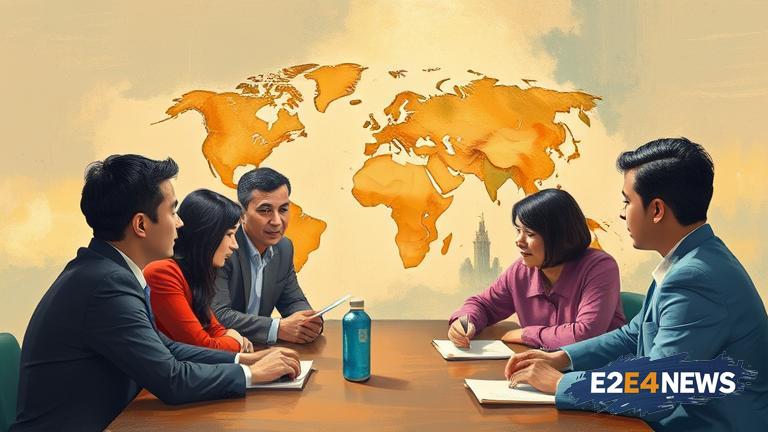Educational diplomacy has emerged as a vital tool in fostering global cooperation and understanding, according to Indonesian Ambassador. In a recent statement, the Ambassador emphasized the significance of educational diplomacy in strengthening relations between nations. By promoting cultural exchange and educational collaborations, countries can build bridges of understanding and foster a sense of mutual respect. This approach has been instrumental in promoting people-to-people diplomacy, allowing individuals from diverse backgrounds to engage in meaningful dialogue and exchange ideas. The Ambassador noted that educational diplomacy has the potential to break down cultural and linguistic barriers, facilitating the exchange of knowledge and expertise between nations. Furthermore, educational diplomacy can play a crucial role in promoting economic cooperation, as it enables countries to share best practices and expertise in various fields. The Ambassador highlighted the example of Indonesia, which has been actively engaged in educational diplomacy efforts with various countries, including the United States, Australia, and Japan. These efforts have led to the establishment of numerous educational institutions and research centers, promoting the exchange of students, scholars, and researchers. The Ambassador emphasized that educational diplomacy is not limited to formal education, but also encompasses informal learning and cultural exchange programs. Such programs have been instrumental in promoting cross-cultural understanding and fostering a sense of global citizenship. The Ambassador noted that educational diplomacy has the potential to address global challenges, such as climate change, poverty, and inequality, by promoting international cooperation and knowledge sharing. Moreover, educational diplomacy can help to promote peace and stability, by fostering a sense of mutual understanding and respect between nations. The Ambassador emphasized the importance of language training and cultural orientation programs in facilitating educational diplomacy efforts. These programs enable individuals to communicate effectively and navigate cultural differences, promoting a sense of comfort and familiarity in foreign environments. The Ambassador highlighted the example of the Indonesian government’s efforts to promote the Indonesian language and culture abroad, through the establishment of language and cultural centers in various countries. These efforts have been instrumental in promoting people-to-people diplomacy and fostering a sense of global understanding. The Ambassador noted that educational diplomacy requires a long-term commitment and a willingness to engage in meaningful dialogue and cooperation. It is essential to establish trust and build relationships, based on mutual respect and understanding. The Ambassador emphasized the importance of educational institutions and research centers in promoting educational diplomacy efforts. These institutions can serve as hubs for knowledge sharing and collaboration, facilitating the exchange of ideas and expertise between nations. The Ambassador highlighted the example of the Indonesian International University, which has been established to promote international cooperation and knowledge sharing in various fields. The university has partnered with numerous international institutions, promoting the exchange of students, scholars, and researchers. The Ambassador noted that educational diplomacy has the potential to promote economic growth and development, by facilitating the exchange of knowledge and expertise between nations. Moreover, educational diplomacy can help to address global challenges, such as poverty and inequality, by promoting international cooperation and knowledge sharing. The Ambassador emphasized the importance of educational diplomacy in promoting global understanding and cooperation, and highlighted the need for countries to engage in meaningful dialogue and cooperation to address global challenges.
